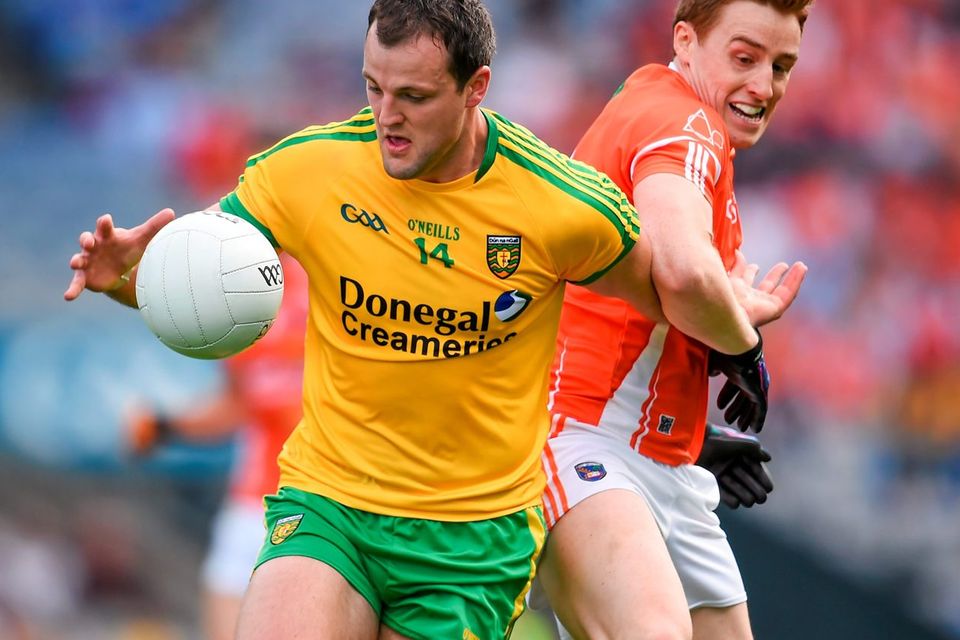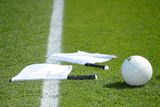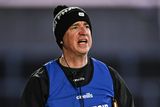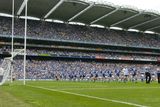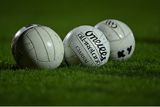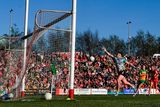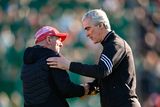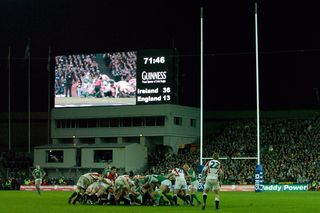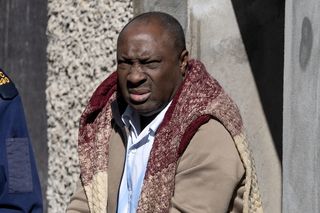Survival for Donegal rests on tactical nous
Michael Murphy's tactical deployment will be crucial to Donegal's hopes. Stephen McCarthy / SPORTSFILE
Five key areas for Jim McGuinness to explore ahead their All-Ireland semi-final renewal against Dublin.
Michael Murphy's deployment
But so much of Donegal's game plan is built around Murphy transporting himself to other parts of the field.
How often throughout this campaign, when Donegal have lost possession, has Murphy led the charge back down the field to assume a position around the 'D' and face the oncoming challenge?
In the Ulster final against Monaghan he did things a little differently, presenting himself almost as a decoy on the wings where Vinny Corey followed, allowing Ryan McHugh and others to take a passage through the middle channel that Corey was compelled to vacate.
Murphy's strike running is also impressive from deep positions, more direct even that Mayo's Aidan O'Shea.
Thus, his spells in the full-forward line have been all too brief.
He turned the Derry game in the third quarter when he resorted to conventional mode and had a spell there in Armagh game when he took two out of three balls that came in to him in the second quarter, from which Donegal were able to create scores.
The temptation to test Rory O'Carroll, whose career as a full-back began when he was switched on to Murphy in the 2010 All-Ireland under 21 final, will be significant in a game that Donegal know they can't win by just deploying a containment strategy.
Dublin's kick-outs-push up or drop off?
For Donegal this is unquestionably the biggest decision they must make.
Three years ago Dublin claimed every one of their kick-outs as Donegal gifted them possession, sat back deep and invited them on.
They did it it the knowledge that the Dublin half-backs were, more than likely, going to hold their positions in accordance with their defensive strategy that season.
Until Kevin Nolan's lead point late in the All-Ireland final, no Dublin defender had scored a championship point in 2011, though James McCarthy did nick a goal in the Leinster final against Wexford.
But holding defensive positions is not Dublin's way any more.
Giving them uncontested kick-outs is asking for greater trouble because of their ability to move ball at pace.
Monaghan eventually found this out to their cost, sitting back on the vast majority until the second half.
McGuinness estimates that Dublin retain possession from between 70% and 85% of Stephen Cluxton's restarts, much higher than the 60% average.
And he wondered loudly last week as to what quantity of kick-outs they might actually win if they did indeed push up.
"If you push up and you do everything right do you get the ball? Does it work? he asked.
Murphy could be critical to what happens when Dublin restart, especially if he positions himself in Michael Darragh MacAuley's vicinity.
Expect Donegal to push up. It's a risk but if they want to win the game…..
Using Karl Lacey as a sweeper
When Donegal don't have possession it is their natural instinct now to defend en masse but they will generally 'appoint' one dedicated sweeper.
With Frank McGlynn and Anthony Thompson likely to be detailed for Diarmuid Connolly and Paul Flynn, it will rest between Ryan McHugh, Paddy McGrath and Karl Lacey for the free role with the McGees picking up Bernard Brogan and Eoghan O'Gara.
Lacey has rarely had the free role in the Donegal set-up but he may be the man for it here with McGrath and Ryan McHugh picking up Alan Brogan and Kevin McManamon/Paddy Andrews.
With injury again nipping away at his preparation his attacking forays have been limited with Thompson and McGlynn much more active on that front so giving their four-time Allstar an area rather than a direct opponent to mind, may be best for him.
Rapid counter attack
Dublin will seek to play as much football as possible in Donegal's half and apply the pressure of numbers that so many opponents have found so difficult to deal with.
Donegal's propensity to try to control the tempo of a game by switching the play from wing to wing out of defence and building slowly leaves them open to a high and very effective press by Dublin.
They need to sharpen their counter attack and transfer quicker than ever out of the danger zone. Easier said than done but the risks of showing Dublin too much of the ball is great.
Playing Colm Mcfadden in a deeper role
Two to three years ago Colm McFadden was arguably the most important piece of the Donegal jigsaw. Often as the solitary point of attack, he had to fend for himself against multiple defenders. Often he triumphed.
But his ability to get on ball put to either side of him appears to have diminished from those days.
Monaghan's Drew Wylie and Armagh's Finnian Moriarty have both had his measure in contests over the last two games.
Maybe McFadden would profit from being brought a little further outfield where his creative touch can complement his capacity for long range point taking, leaving Paddy McBrearty in the most advanced position.
